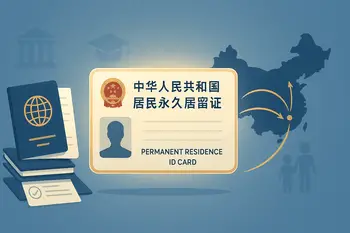
Navigating taxation in a foreign country can feel overwhelming, but with proper planning, expats in China can manage their tax obligations effectively.
China’s tax system has undergone significant reforms in recent years, making it crucial for expatriates to stay informed and compliant.
This guide provides detailed insights, practical tips, and resources to help expats optimize their tax strategy and avoid common pitfalls.
1. Understand China’s Tax System
China uses a progressive tax rate system for individual income tax (IIT), ranging from 3% to 45%.
Expats are taxed based on their residency status and income source.
Key Points to Know
- Tax Residency:
- If you stay in China for more than 183 days in a calendar year, you are classified as a tax resident.
- Tax residents must report worldwide income, while non-residents are taxed only on China-sourced income.
- Taxable Income: Includes wages, salaries, bonuses, and other compensation. Some benefits, such as housing and education allowances, may be partially exempt.
| Tax Bracket | Taxable Income (Monthly) | Tax Rate |
|---|---|---|
| 1 | Up to ¥3,000 | 3% |
| 2 | ¥3,001–¥12,000 | 10% |
| 3 | ¥12,001–¥25,000 | 20% |
| 4 | ¥25,001–¥35,000 | 25% |
| 5 | ¥35,001–¥55,000 | 30% |
| 6 | ¥55,001–¥80,000 | 35% |
| 7 | Over ¥80,000 | 45% |
Source: China’s State Tax Administration (STA)
2. Take Advantage of Exemptions and Deductions
China offers various exemptions and deductions to reduce the tax burden on expats.
Special Deductions
- Housing Allowance: Tax-exempt if supported by valid rental agreements and invoices (fapiao).
- Children’s Education: Tuition fees for international schools may be deductible.
- Language Training: Costs for learning Mandarin can be claimed under certain conditions.
Social Insurance
- Contributions to China’s social security system are mandatory in most cities. However, some cities exempt expats, and bilateral agreements with certain countries may prevent dual contributions. Check if your home country has a social security agreement with China.
| City | Social Insurance Contribution (Employer) | Social Insurance Contribution (Employee) |
|---|---|---|
| Beijing | ~27% | ~11% |
| Shanghai | ~25% | ~10.5% |
| Shenzhen | ~30% | ~8% |
Source: China Briefing
3. Know Your Reporting Obligations
Compliance is critical for expats living in China.
Here’s what you need to know:
- Monthly Tax Filing: Employers typically handle monthly IIT filings, but expats should verify the accuracy of their filings.
- Annual Tax Declaration: Expats earning additional income (e.g., from investments or freelancing) must file an annual declaration.
- Foreign Asset Reporting: Tax residents may need to report foreign assets exceeding certain thresholds. Consult a tax advisor for guidance.
Key Deadlines
- Monthly Filing: By the 15th of the following month.
- Annual Declaration: By March 31 of the following year.
4. Optimize Your Tax Strategy
Strategic planning can help minimize tax liabilities and maximize savings.
Double Tax Agreements (DTAs)
China has DTAs with over 100 countries to prevent double taxation. Check if your home country has an agreement with China and how to claim benefits.
- Example: If you’re a U.S. citizen, you may be able to offset taxes paid in China against your U.S. tax obligations.
Tax-Free Zones
Certain areas, such as Hong Kong, Macau, and free trade zones, offer lower tax rates or exemptions for specific income categories. If your work allows, consider relocating to these zones.
| Region | Tax Incentive |
|---|---|
| Hong Kong | Flat 15% income tax rate |
| Macau | Lower corporate and personal tax rates |
| Free Trade Zones | Tax exemptions for certain industries |
Investment Strategy
Explore tax-efficient investment options in China, such as government bonds or tax-advantaged savings accounts.
5. Seek Professional Assistance
China’s tax laws are complex and frequently updated.
Hiring a qualified tax consultant can simplify the process and ensure compliance.
Look for professionals with expertise in expat taxation.
- Recommended Firms:
6. Stay Updated on Tax Reforms
China’s tax laws evolve regularly, with reforms affecting deductions, thresholds, and social insurance rules.
Stay informed by subscribing to newsletters or following reliable sources like:
7. Common Mistakes to Avoid
Many expats face challenges due to misunderstandings or oversights.
Avoid these common mistakes:
| Mistake | Consequence | Solution |
|---|---|---|
| Underreporting Income | Penalties and fines | Disclose all income sources. |
| Ignoring Residency Rules | Incorrect tax filings | Verify your residency status annually. |
| Late Filing | Fines and disrupted financial plans | Set reminders for deadlines. |
Conclusion
Tax planning is an essential aspect of expat life in China.
By understanding the tax system, leveraging exemptions, and seeking expert advice, expats can reduce liabilities and remain compliant with local laws.
With thorough preparation and strategic planning, navigating taxes in China becomes far more manageable.


